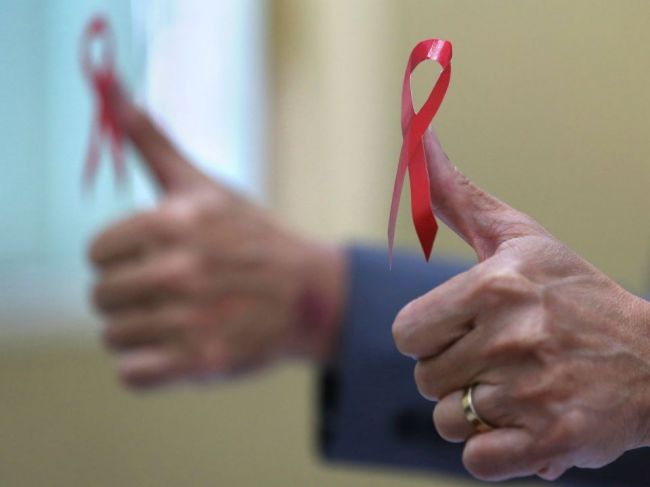
[ad_1]
During this period, one case of acquired immunodeficiency syndrome and one death of an HIV-infected patient were diagnosed and reported. 21 new cases of HIV infection were reported among foreigners. This was informed by the spokesman of the Ministry of Health (MZ) of the Slovak Republic Zuzana Eliášová on the occasion of the World AIDS Day, which falls on 1 December.
Slovakia has been one of the EU Member States with the lowest incidence of HIV infection in recent years, Eliášová recalls. However, the number of cases is growing. The most infected live in the Bratislava region, says Eliášová.
He adds that since the start of monitoring in 1985 until the end of October, Slovakia has recorded 1253 cases of infection. In 127 people, HIV passed to AIDS. During this period, 75 people died of HIV in Slovakia, including 56 undergoing AIDS.
“Of the total number of HIV cases in Slovakia (1985-2020), transmission of infection by homosexual intercourse was determined in 71.25% of cases and 20.3% of infections were transmitted by heterosexual intercourse “, the spokesperson said.
The head of the Ministry of Health, Marek Krajčí (OĽANO), stresses the need for prevention in the fight against this disease. According to him, the test is an essential tool for starting the necessary treatment as quickly as possible. “This will ensure that all people with HIV can lead healthy and productive lives. “ Krajčí noted, pointing out that early detection will prevent the spread of the population.
The chief hygienist of the Slovak Republic, Ján Mikas, reminds that people with suspected HIV infection should not postpone tests for the presence of anti-HIV antibodies. “At the moment, HIV infection is already treatable, but it is still an incurable disease. “ He said.
The tests are offered by the National Reference Center for HIV / AIDS Prevention at the Slovak Medical University in Bratislava, by the HIV / AIDS Advisory Center at selected Regional Public Health Offices (RÚVZ) in the Republic Slovak, some departments of clinical microbiology. It is also possible to ask a general practitioner to draw blood for testing, explains Eliášová.
“All 36 regional public health offices provide information on HIV / AIDS by phone or email, last year they provided 871 telephone consultations.” Explained the chief hygienist.
HIV is a human immunodeficiency virus. This virus attacks the human immune system and thus reduces the immune system against disease, explained Eliášová. It continues that the terminal stage of HIV infection is AIDS, an immunodeficiency syndrome, when many health problems, opportunistic infections and oncological diseases appear.
.
[ad_2]
Source link